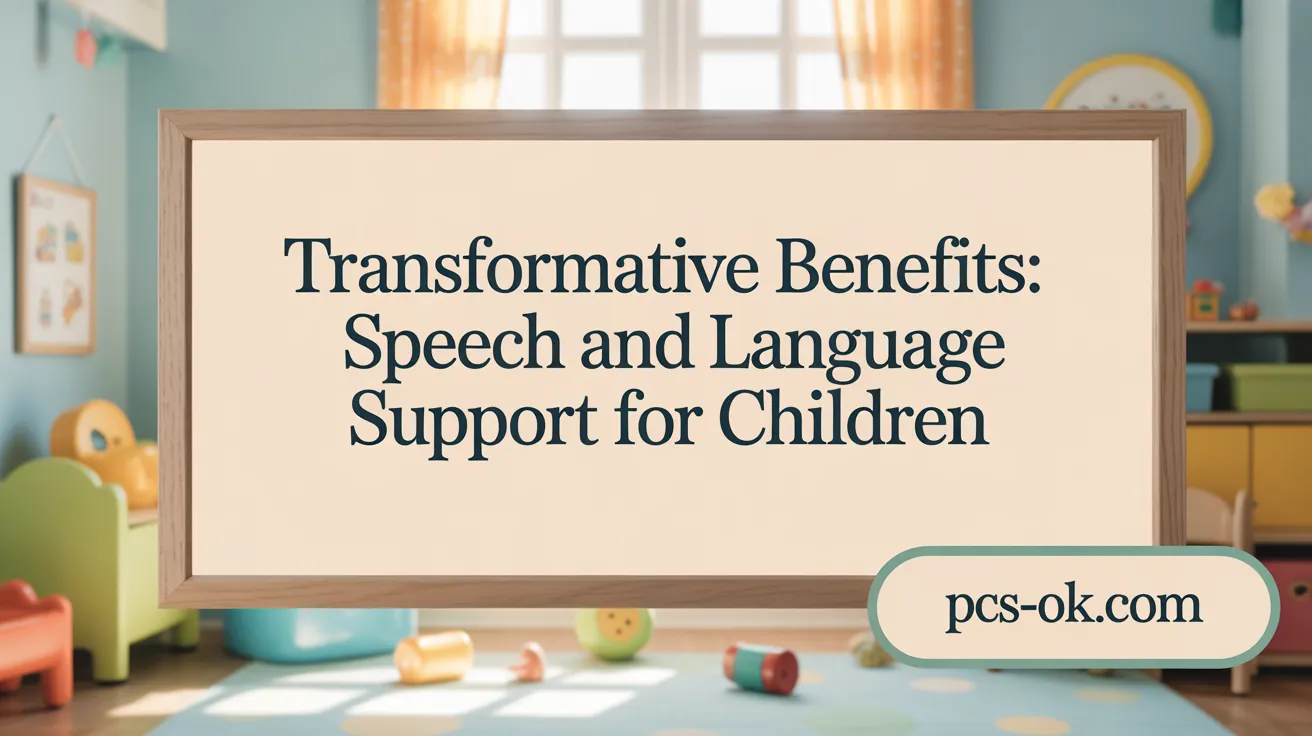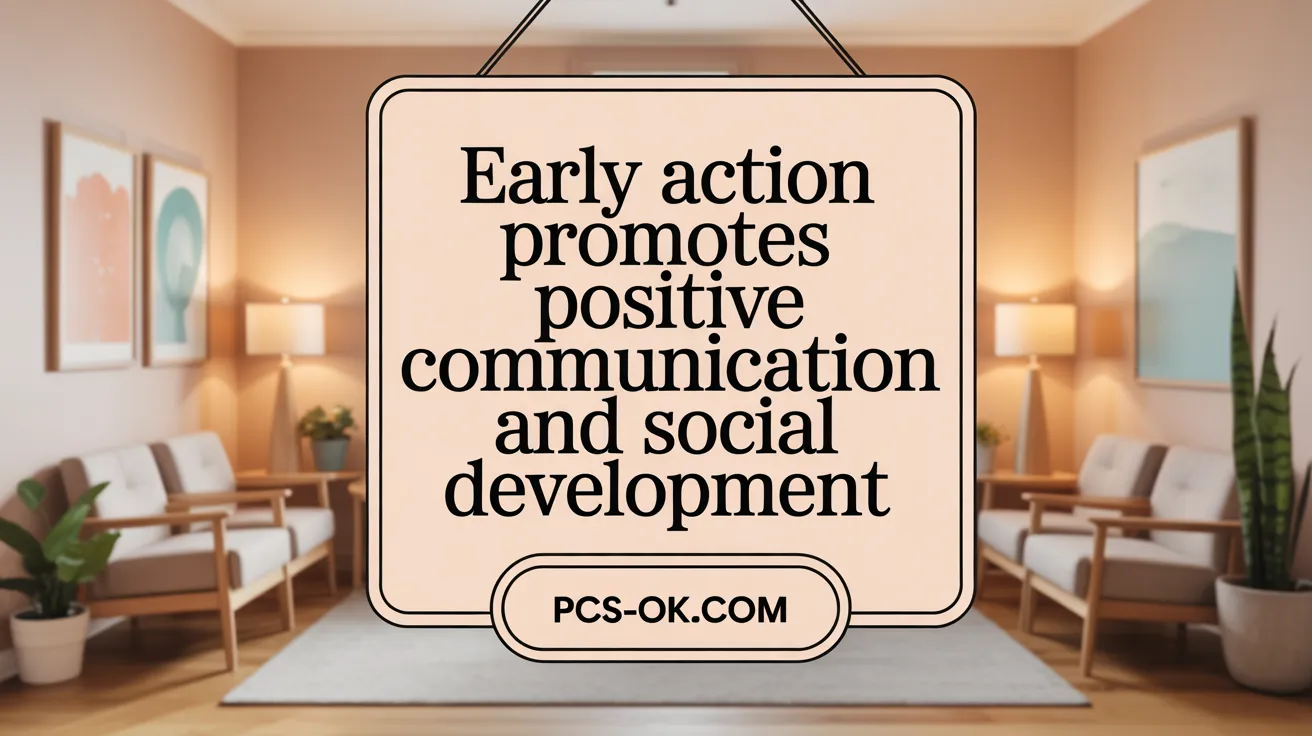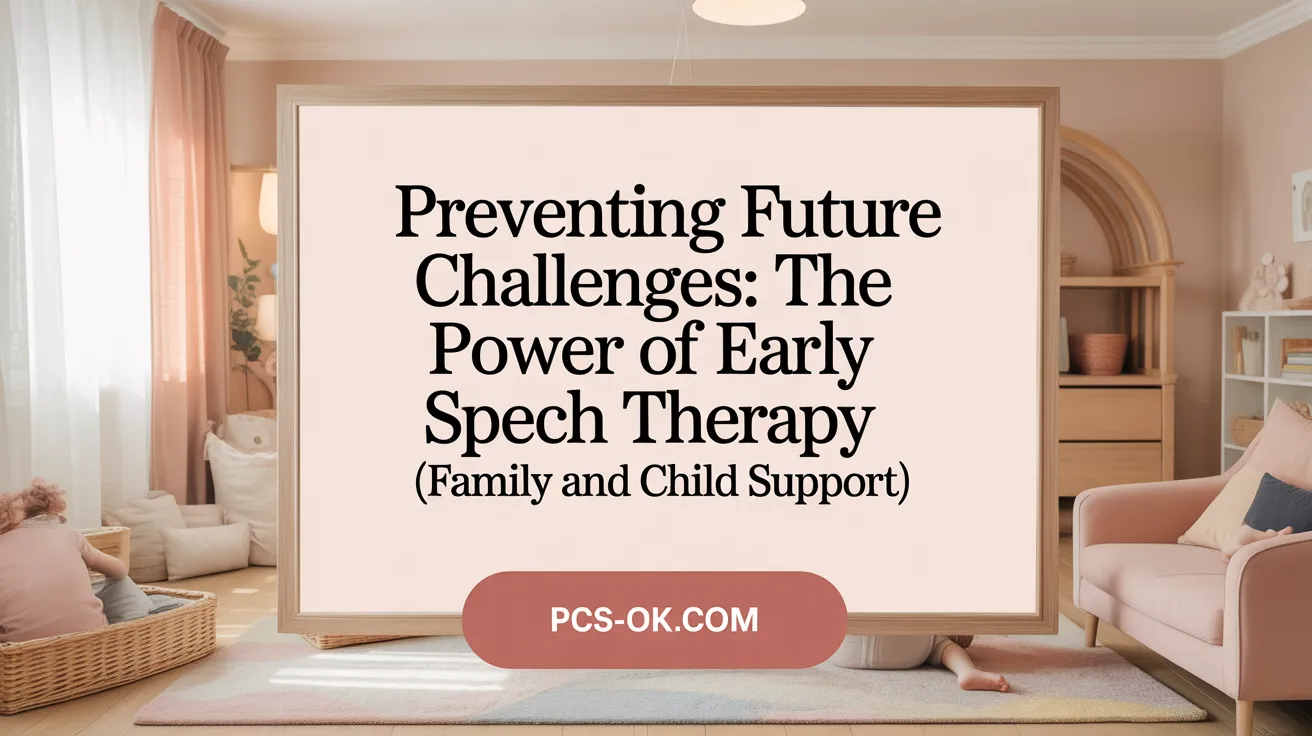Why Early Intervention in Speech Therapy Matters
Understanding the Power of Early Intervention in Speech Therapy
Early speech therapy intervention is a transformative approach that harnesses the unique neuroplasticity of young children’s brains to address speech and language challenges. This article explores why initiating therapy during the earliest developmental stages is essential for fostering communication skills, preventing secondary difficulties, and setting children on a path to lifelong success. Backed by scientific research and practical insights, we delve into the many benefits and rationale behind prioritizing early speech intervention, illustrating its profound impact on child development and family well-being.
The Importance and Timing of Early Intervention in Speech Therapy

Why is early intervention important in speech therapy for child development?
Early intervention in speech therapy is vital because the brain’s plasticity is highest during early childhood. This neural flexibility allows children to develop communication skills more effectively, often leading to quicker progress. Catching speech and language issues early can prevent future challenges in social interactions, learning, and emotional development.
Involving parents as active participants helps create a nurturing environment for growth. They can model language, reinforce strategies at home, and support their child’s communication efforts. This family-centered approach enhances the effectiveness of therapy, helping children build social, cognitive, and emotional skills interconnected with their language abilities.
Overall, starting speech therapy early maximizes a child’s developmental potential, laying a strong foundation for lifelong confidence in communication and social success.
Scientific Foundations and Practical Approaches in Early Speech Therapy
What are the key scientific and practical aspects of early intervention in speech therapy?
Early intervention in speech therapy is rooted in scientific understanding of brain development, particularly brain neuroplasticity. During the first few years of life, the brain is highly adaptable, making this a critical window for establishing foundational communication skills. By providing targeted, evidence-based interventions during this period, therapists can effectively support neural pathways involved in speech and language, often resulting in more significant and long-lasting progress.
Practically, early speech therapy places significant emphasis on family engagement. Family-centered care involves working closely with parents and caregivers, who are integral to reinforcing learning and promoting language development in everyday routines. Strategies are culturally responsive and tailored to each child’s environment, often utilizing play-based activities, routines, and natural interactions that seamlessly integrate therapy goals.
A multidisciplinary team approach is essential, incorporating speech-language pathologists, audiologists, occupational therapists, and other specialists. Teams develop individualized plans—often called Individualized Family Service Plans (IFSPs)—which specify tailored goals and interventions. These plans typically use evidence-based techniques such as modeling correct speech, prompting the child to repeat sounds, visual supports like picture cards, and augmentative communication devices when needed.
Ongoing assessment and evaluation are critical components to track progress and adjust intervention strategies. Family involvement extends beyond direct therapy sessions; parents are trained to embed techniques into daily activities, making therapy a natural part of the child’s routine. Utilizing assistive devices and supports further enhances outcomes.
Overall, early speech intervention combines scientific principles—like neural plasticity—with practical methods that prioritize family involvement and collaborative, personalized care. This integrated approach optimizes the child’s communicative, social, and cognitive development, setting a strong foundation for lifelong learning and social integration.
Benefits of Early Speech and Language Intervention for Children and Families

What are the benefits of early speech and language intervention?
Early intervention in speech and language development offers numerous advantages for children and their families. One of the primary benefits is the significant improvement in communication skills. When therapy begins early, children can develop clearer speech, better vocabulary, and stronger understanding of language, which are essential for engaging effectively in social interactions.
Enhanced communication skills help children express their needs confidently, reducing feelings of frustration and promoting emotional well-being. Early intervention also plays a crucial role in supporting social and emotional development by teaching children how to interpret social cues, build relationships, and interact with peers.
Another important aspect is the impact on academic success. Children with strong language skills are better prepared to learn to read, write, and participate actively in classroom activities. This early foundation can lead to better academic performance and reduce the likelihood of needing later special education services.
From a financial perspective, early intervention is cost-effective. It can lessen the need for extensive, costly services in the future by addressing issues promptly. This proactive approach decreases long-term healthcare costs and supports better resource allocation.
Equally vital is the empowerment of families. Early intervention programs provide parents with tools, strategies, and resources to support their child’s development at home. Parental involvement enhances therapy outcomes and fosters a supportive environment for ongoing growth.
Research underscores that initiating therapy during the brain’s most plastic period—early childhood—maximizes progress. Overall, early speech and language intervention set a foundation for lifelong communication skills, social confidence, academic achievement, and emotional health for children, while also empowering families to play an active role in their child’s development.
Impact of Early Intervention on Communication Skills and Developmental Outcomes

How does early intervention impact communication skills and developmental outcomes?
Starting early with speech and other developmental therapies can make a profound difference in a child’s growth. When children receive intervention during the first few years, they often show marked improvements in their ability to communicate effectively with others. This is especially true for children with autism spectrum disorder (ASD), where early support can help mitigate some core symptoms.
Research highlights that children who begin intervention early tend to develop stronger social communication skills, including understanding social cues, expressing needs, and engaging in interactions with peers and adults. These improvements lay a foundation for better social relationships and academic success later in life.
In addition to boosting language skills, early intervention positively influences emotional well-being by helping children manage frustrations related to communication difficulties. It supports cognitive development as well, by fostering listening, understanding, and problem-solving abilities.
The timing of intervention is crucial. Support given before age 5 maximizes benefits because this period aligns with the brain’s high plasticity — its natural ability to adapt and form new neural connections. If intervention is delayed beyond age 8, the effects on development tend to diminish, underscoring the importance of early support.
Clinicians and parents working together produce the best results. When parents are actively involved, they learn strategies to model language, reinforce skills at home, and advocate for their child’s needs. Therapists, including speech-language pathologists, employ a variety of evidence-based therapies tailored to each child’s abilities, further enhancing progress.
Overall, early intervention fosters substantial and enduring improvements in communication skills and supports children in reaching their full developmental potential. These early gains not only improve immediate speech and social interaction but also generate long-term advantages across social, cognitive, and emotional domains.
Preventing Secondary Issues through Timely Speech Therapy Intervention

What role does early intervention play in preventing secondary issues related to speech and language delays?
Early intervention is vital in stopping secondary issues from developing in children with speech and language delays. When therapy begins during the crucial early years, it helps children develop essential communication skills like listening, understanding, and social interaction more effectively.
By addressing speech and language challenges early, children are less likely to experience frustration, which can lead to behavioral problems. Additionally, early intervention reduces the chance of social isolation, as children learn to communicate and connect with peers more confidently.
The brain’s high plasticity during early childhood means that interventions at this stage can create stronger neural pathways, leading to more enduring improvements. This proactive approach helps prevent subsequent difficulties such as poor academic performance and emotional struggles later in life.
Parents play a significant role in this process. Their involvement, guided by speech-language pathologists (SLPs), provides a supportive environment at home that fosters language development.
Overall, early intervention not only improves speech but also sets a foundation for healthy social, emotional, and academic growth, ensuring better long-term outcomes for children.
Conclusion: The Lasting Value of Early Speech Therapy Intervention
Early intervention in speech therapy is a pivotal strategy that capitalizes on the rapid brain development during a child’s earliest years, enabling effective addressal of speech and language delays before they lead to more complex challenges. By integrating scientific knowledge of neuroplasticity with practical, family-centered therapies, early intervention fosters not only communication skills but broader cognitive, social, and emotional growth. The benefits extend beyond immediate improvements, preventing secondary academic and social difficulties, and contributing to lifelong wellbeing and independence. Involving families as active partners is key to maximizing outcomes and ensuring lasting support. Ultimately, early speech therapy is an investment in a child’s future, unlocking their full developmental potential and enhancing quality of life for children and their families alike.
References
- The Importance of Early Intervention in Speech Pathology
- Benefits of Early Intervention in Speech Pathology
- Early Intervention
- Why Early Intervention Matters More Than You Think
- Why Is Early Intervention Important?
- Early Intervention – Why the First Three Years Matter Most
- The Importance of Early Intervention in Therapy | Bista
